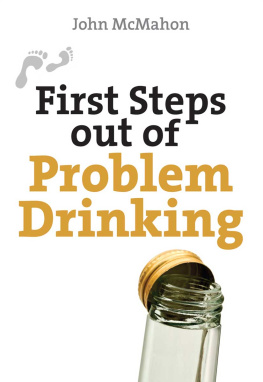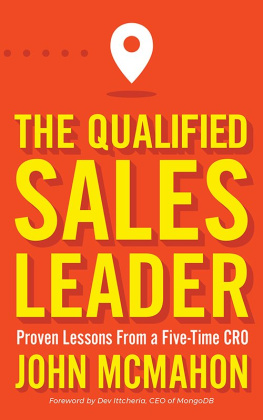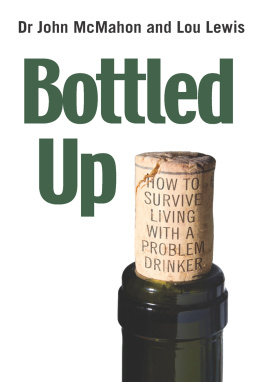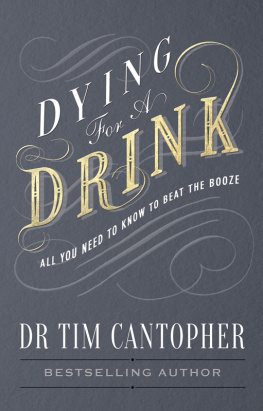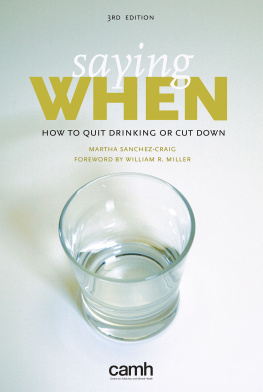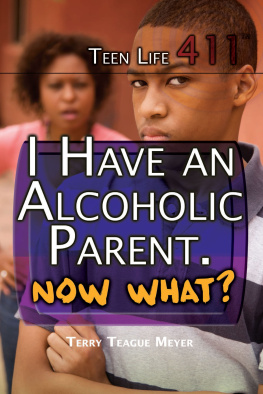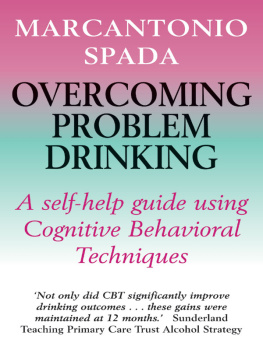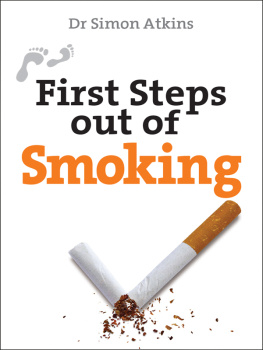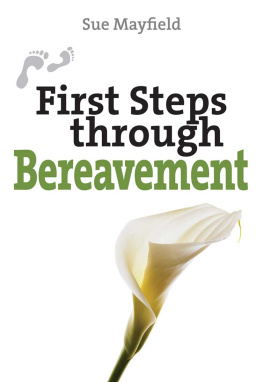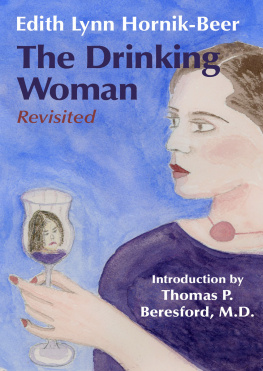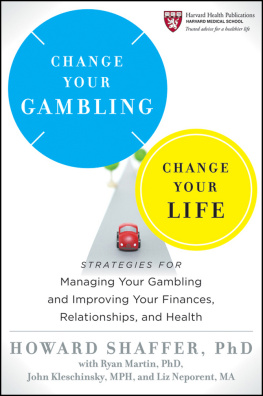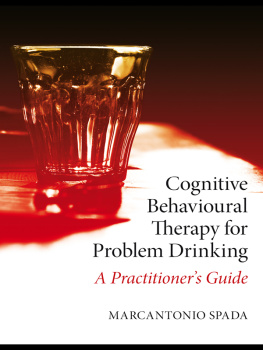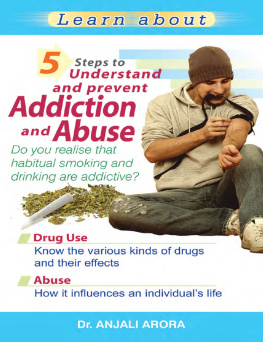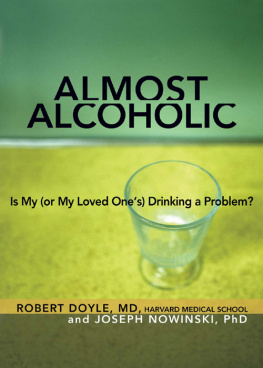First Steps out of Problem Drinking
Why this book?
Have you ever wondered whether you, or a loved one, might have a drinking problem?
Do you ever find yourself
- forgetting how many youve had?
- just finishing off the bottle?
If so, this book will help you understand:
- when drinking becomes a problem;
- how many people it affects, and in what way;
- what to do if you want to change whether for the first time, or the fifth;
- how to set realistic goals and achieve them;
- how to avoid relapse;
- how to provide support to a problem drinker.
Full of tried-and-tested advice, it will enable you to take the first steps on the journey out of problem drinking to a healthier, happier you.
Cover image: Jim M. Macdonald/Alamy
Introduction
For decades it was believed that the only way out of addictive behaviours was to get treatment or attend Alcoholics Anonymous (AA). This view is now changing; in recent years it has been increasingly recognized that people with addiction problems can and do recover without the aid of treatment (including AA). At first it was thought that these people were the exception, that this so-called natural recovery was a rare phenomenon. However, research has found that rather than being rare, natural recovery is by far the most common route out of all kinds of addiction smoking, drugs (including heroin), and alcohol.
Research on natural recovery has found that if people want to change their addictive behaviour for the better, then there are some basic steps that need to be carried out. This approach suggests that recovery from addiction is simple, but that should not be confused with easy. There is no doubt that recovery is difficult and requires a lot of effort and persistence.
Dont be fooled by advertisements promising that you can overcome your addiction in five minutes or by playing a CD while you are sleeping, or any other get recovered quick schemes. They may be tempting; in fact, they are very tempting human nature is always looking for an easy way of doing things but unfortunately they rarely, if ever, work.
However, if you follow the method laid out in this book, then there is a strong probability that you will be able to change your behaviour and lead a sober life.
Who is this book for?
This book is for anyone who knows, thinks, or even worries that they have a problem with alcohol. If you want to stop drinking, have a break from drinking, reduce drinking, or give your drinking a reality check, then this book can help you.
How many people are affected?
Approximately 8.2 million people in England alone 26 per cent of adults (38 per cent of men, 16 percent of women).
Approximately 1.1 million people in England are alcohol-dependent 3.6 per cent of adults (6 per cent of men and 2 per cent of women).
Do you worry about your drinking? Do you sometimes, or even often, feel that you are drinking more than is good for you? Have others remarked about your drinking your spouse, friends, boss? Do you regularly find yourself drinking more than you intended to, despite having promised yourself that it would not happen this time? Have you tried to cut down your drinking and failed? This book can help you.
It will provide you with a few simple tools that will allow you to assess whether or not you have a drinking problem and how that problem might be affecting your life. It will then show you how to use that assessment to build the motivation you need to change and maintain that change successfully. It will introduce you to simple strategies to avoid putting yourself at risk of relapsing, but if you do relapse, then this is also covered. Finally, it discusses issues that can arise when you change, and finishes with a chapter for your family or those who are supporting you.
How do I use this book?
Getting sober is no different from any other task. The preparation is the most important part. Take your time and do it properly and the rest of the work should go smoothly; do it in a rushed or shoddy fashion and you are likely to struggle.
When changing your behaviour, the more information you have about the behaviour, the easier it will be. At a basic level, you need to know what it is that you are changing and why.
In this book are the tools for a new life, but they will not change your life unless you put them to use. If you do use the tools wisely, your life will be so different, and alcohol will no longer be a problem for you or your family.
Over to you!
Reading this book will no more get you sober than reading a fitness book will make you fit. It is what you do with the information that can change your future. You should use this book as a workbook and carry out the exercises and use the tools. You are the one who can get you sober this book just shows you the way.
Why listen to me?
I come to this issue from many different perspectives. I have worked as a therapist in alcohol and drug treatment centres, where I have treated people and created new treatment programmes. For twenty years I was an academic researching how people change, and I have published widely and presented at conferences all over the world. During that time I helped to write and teach the biggest masters level course on addiction in the UK. More recently, I have designed and created successful self-help websites one, which won an award, to help people with an alcohol problem, another for their families and I was commissioned to build the alcohol website for a major health board.
But alongside these professional reasons there is a personal one. Ive been there! I had a major problem with alcohol and drugs, which required me to be hospitalized at one stage. I have now been clean and sober for more than twenty-five years (since 1984). So if you put all that experience together, I just may have some insight into where you are coming from and where you are going.
Good reading and good luck.
John
Drinking problems clinical perspectives
One evening I got a phone call. It came from a woman who was worried about her grown-up son. He was at her house after splitting from his wife and he had been drinking heavily for a few days. I said that I would call round the next morning and that she should try to prevent him from drinking any more that night. I called round the next day and was shown into his bedroom. He lay in bed, clearly in a poor state. He was shaking, sweating, and obviously withdrawing from alcohol. His first words to me were, Im not an alcoholic.
I had not mentioned the word alcoholic, but nevertheless he had to make it clear to me that he was not one. To most people, including his mother, he clearly fitted the alcoholic label. But if he was going to accept help, then it had to be on the understanding that he was not an alcoholic.

